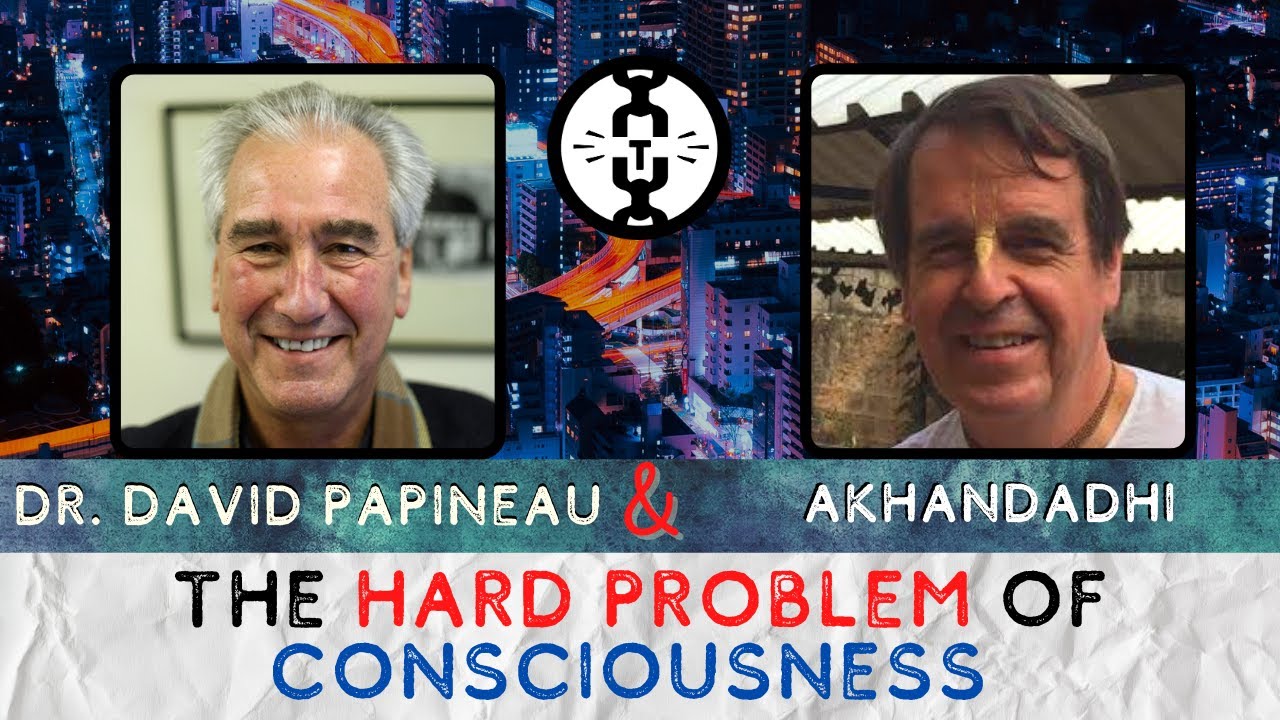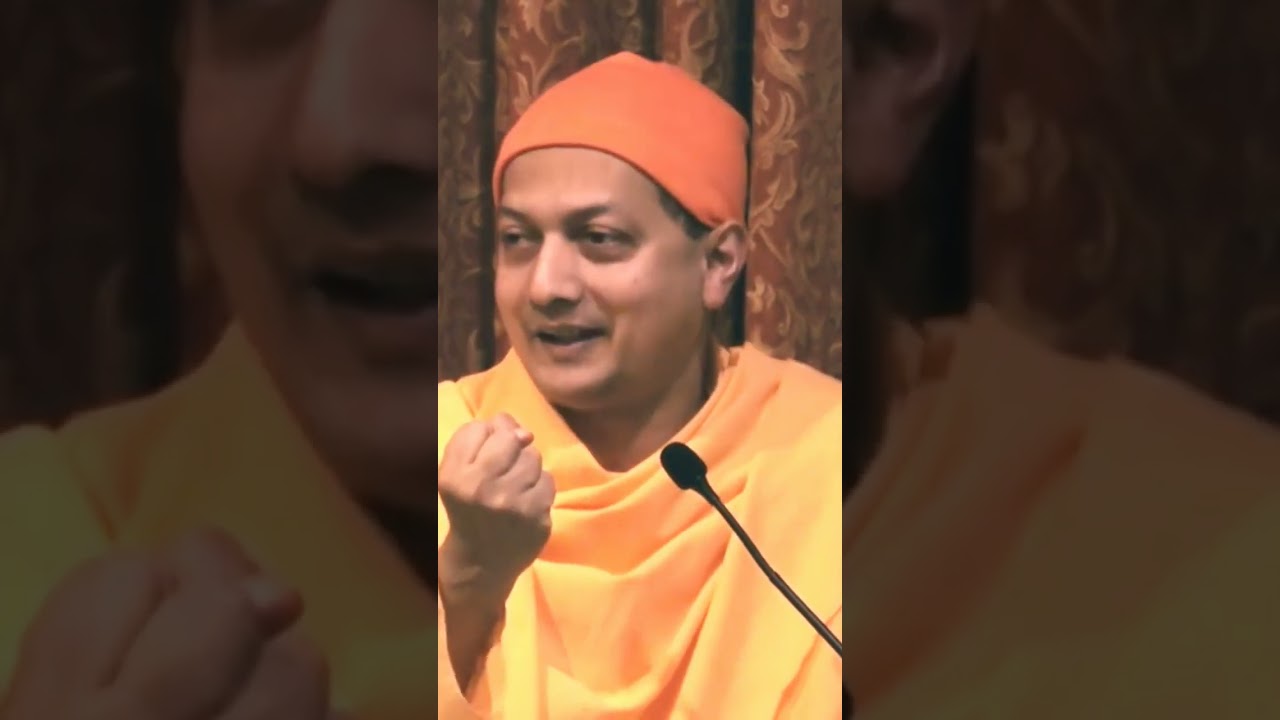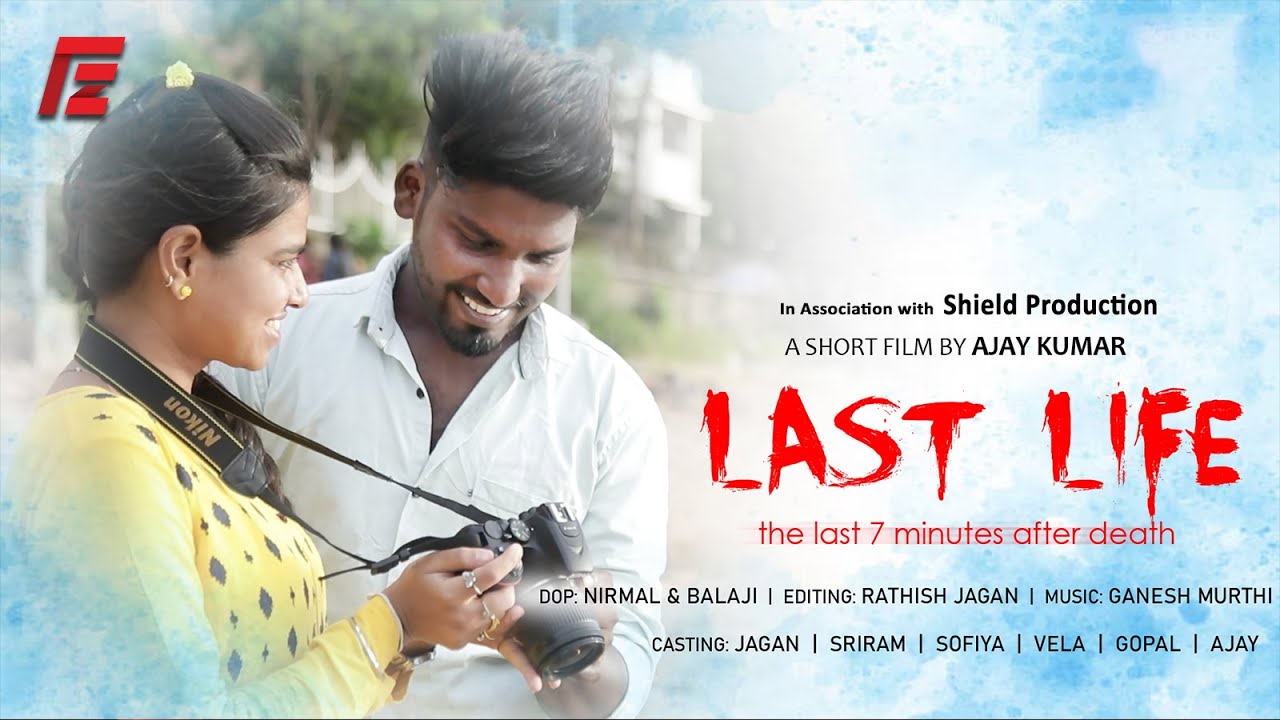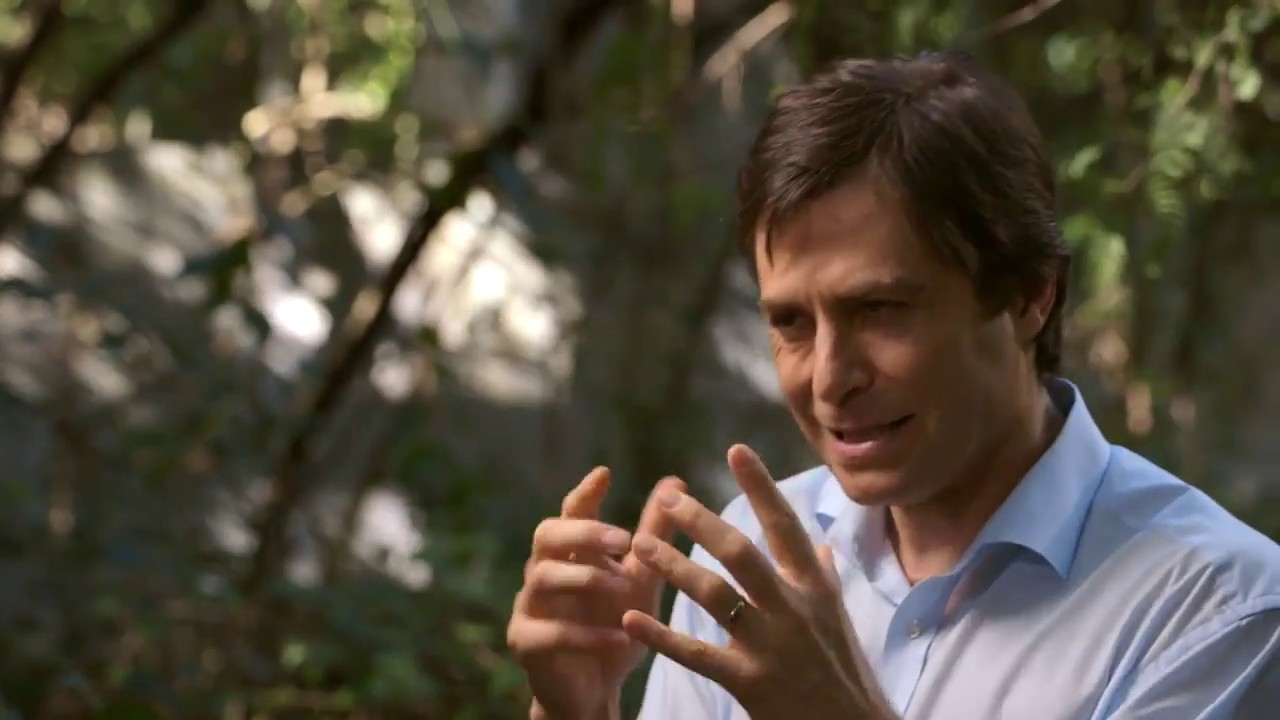Theology Unleashed
In this discussion we have a western philosopher and a Vedanta philosopher streaming in for a discussion on the hard problem of consciousness. The Hard problem of consciousness has been a hot topic in philosophy for centuries. In recent decades it has gained attention once again with David Chalmers coining the term and reminding philosophers of the problem. David Papineau comes from a more naturalist perspective, although he finds the term problematic, and Akhandadi is a practicing Vaishnava who comes from a Vedanta Perspective. The schools of Vedanta, Sankhya & Yoga discuss a model of consciousness and psychology which is of relevance to modern philosophy & neuroscience.
“David Papineau is a British academic philosopher, born in Como, Italy. He works as Professor of Philosophy of Science at King’s College London and the City University of New York Graduate Center having previously taught for several years at Cambridge University where he was a fellow of Robinson College.” He has written widely on epistemology, metaphysics and the philosophy of science and mind. His books include “For Science in the Social Sciences” (1979), “Theory and Meaning” (1990), “Reality and Representation” (1987), “Philosophical Naturalism” (1992), “Thinking about Consciousness” (2002), “Philosophical Devices” (2012), and “Knowing the Score” (2017).
Akhandadi Das is a Vaishnava theologian, philosopher of mind, BBC Thought of the Day regular, and very interested in the interaction of consciousness at all levels of reality. He has produced a YouTube series called “Atma Paradigm”, and plans to produce writing on the subject.
https://www.s-pi.org/
Social Media https://www.facebook.com/Theology.Unleashed
https://www.patreon.com/theologyunleashed
My other videos https://www.youtube.com/playlist?list=PLZF7SCps26MqLktOzHFUTFf3gYVLUn3o3
Source




It's becoming clearer that with all the brain and consciousness theories out there, the proof will be in the pudding. By this I mean, can any particular theory be used to create a human adult level conscious machine. My bet is on the late Gerald Edelman's Extended Theory of Neuronal Group Selection. The lead group in robotics based on this theory is the Neurorobotics Lab at UC at Irvine. Dr. Edelman distinguished between primary consciousness, which came first in evolution, and that humans share with other conscious animals, and higher order consciousness, which came to only humans with the acquisition of language. A machine with primary consciousness will probably have to come first.
The thing I find special about the TNGS is the Darwin series of automata created at the Neurosciences Institute by Dr. Edelman and his colleagues in the 1990's and 2000's. These machines perform in the real world, not in a restricted simulated world, and display convincing physical behavior indicative of higher psychological functions necessary for consciousness, such as perceptual categorization, memory, and learning. They are based on realistic models of the parts of the biological brain that the theory claims subserve these functions. The extended TNGS allows for the emergence of consciousness based only on further evolutionary development of the brain areas responsible for these functions, in a parsimonious way. No other research I've encountered is anywhere near as convincing.
I post because on almost every video and article about the brain and consciousness that I encounter, the attitude seems to be that we still know next to nothing about how the brain and consciousness work; that there's lots of data but no unifying theory. I believe the extended TNGS is that theory. My motivation is to keep that theory in front of the public. And obviously, I consider it the route to a truly conscious machine, primary and higher-order.
Dr. Edelman's roadmap to a conscious machine is at https://arxiv.org/abs/2105.10461
Hare Krishna Prabhu, greetings from Mayapur. Hope you are well.
Prabhu, Would be nice to have Akhandadi Prabhu in a discussion with Dr, Bernardo Kastrup, he is a really nice interlocutor, very clear in his presentation and opens as well, this discussion could attract a good amount of people to the Chanel. And provide a good material for thought.
Bernardo Kastrup has done a good job driving off materialism, although himself a sort of idealist.
This was really poor. I could only stand to listen to 15 minutes of it before giving up. Papineau doesn't have an argument. He literally says things like: "Given that all physical events are due to physical causes (why is that a given?), you have to conclude that consciousness has to be physical" (paraphrase, 14:40). What kind of argument is that? And Akhandadhi Das has already dashed any hopes he might anything really interesting to say. He's a "Vedantic realist", he tells us; he believes the "external world" is "real". Unless he's being painfully tautological, that means he is some kind of materialist or physicalist (and so a very strange and unusual "Vedantist" indeed).
The theme of this channel is what is most reqd in these times of quarrel n disturbance. . These dinterfaith discussions/ de ates. People
Just watched that debate you had with tjump on morality. Ah, if only you were an atheist, your mind is wired right when it comes to morality… Indeed, how does he know it is objective as he claims? You pressed him well, you were on the right path… He went from noting the earth is going around the moon, and he called that subjective, and compared it to 'feelings' about killing babies… The earth going around the moon, is objective, not subjective… Morality is subjective, until shown otherwise. Morality is a dog barking at another dog, when it comes too close to its food bowl… Religious writings, are a 'set of rules', and examples to live by, writ by humans, and used to bark others in-line.
Theology unleashed team, specially Arjuna Prabhu, thank you so much for this endeavor. We hope to see content more often.
I'm glad everyone is using my theory of consciousness. Consciousness is a geographic location of self separate from environment at a young age. Consciousness is an administrative tool that takes information compares it to memory, processes at cognitive part of the brain by conceptualizing and predicting the outcome then it takes action and that's a closed loop and it puts all this in first person view. Freewill is a side effect of it with more free parameter as information grows. Philosopher Rikard Dushi
I always miss the first few minutes of these discussions because of the unnecessarily obnoxious noise that accompanies the countdown.
Great. Akandhadi is an actual example of someone who knows what he's talking about and is solely dedicated to establishing consistent truths without ignoring or distorting any of the arguments the other person makes. He isn't insulting anyone or twisting words around. He's a genius, a real gentleman and realised soul, we all had the privalage of speaking with him over prasadam for Gaura-Purnima in Cardiff and heard about this debate happening.
Thanks for arranging it Arjuna!
Hearing from Akandhadi would inspire any reasonable minded person, not completely sold out to hedonistic materialism.
"The hard problem of consciousness". Inventing problems that do not exist, then having no evidence to support the claim.
i don't understand how, therefore…. seem to sum up Akhandadhi's position precisely
Hare Krishna, good work!